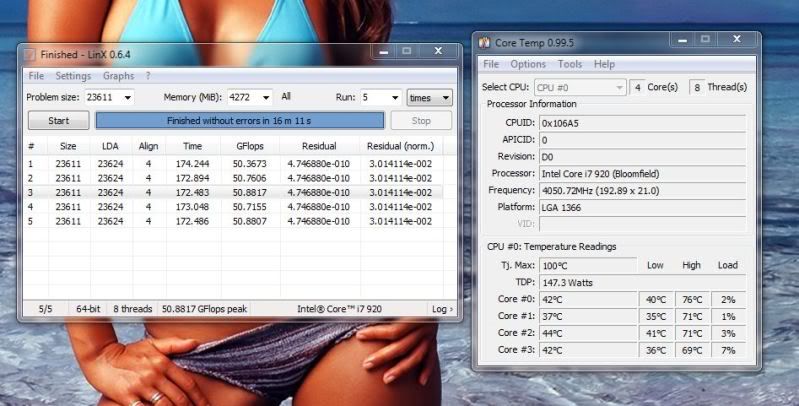hi folks,
wondered if anyone would be able to shed any light on my issue atm.
Basically, to sum it up with a picture:

It's passing the tests as "stable" but for some reason the GFlops output is very low compared to others running same clockspeed. It sorta suggests that the CPU isnt running as it 'should'?
I can't for the life of me fathom why.
Any ideas?
wondered if anyone would be able to shed any light on my issue atm.
Basically, to sum it up with a picture:
It's passing the tests as "stable" but for some reason the GFlops output is very low compared to others running same clockspeed. It sorta suggests that the CPU isnt running as it 'should'?
I can't for the life of me fathom why.
Any ideas?





 :
:

